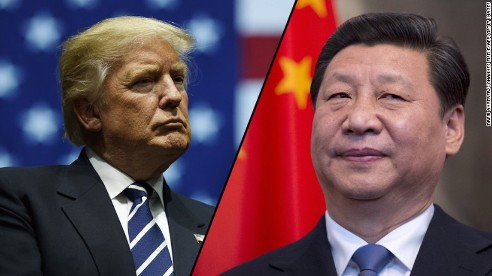Coronavirus: China To Expel U.S. Journalists From Three Major Media

LAGOS MARCH 18TH (NEWSRANGERS)-Political skirmishing between Washington and Beijing escalated Tuesday when China announced it was expelling expelling U.S. journalists working for three American news outlets in response to Trump administration restrictions on Chinese media here.
U.S. Secretary of State Michael R. Pompeo condemned China’s action and accused the Chinese of imperiling world health by cracking down on independent journalism during the widening coronavirus pandemic.
“This is unfortunate,” Pompeo said Tuesday in a news conference at the State Department, where reporters were seated several feet apart from one another as a precaution against contagion.
“I regret China’s decision today to further foreclose the world’s ability to conduct the free press operations that, frankly, would be really good for the Chinese people in these incredibly challenging global times, where more information, more transparency, are what will save lives,” he said.
China has expelled — or denied work credentials to — at least six U.S. journalists so far this year, thought to be the largest action against the foreign press in the country since the Mao Tse-tung era, which ended in 1976.
China’s Foreign Ministry said in a news release posted early Wednesday that press credentials will not be renewed for American journalists working for the Wall Street Journal, the Washington Post and the New York Times. The credentials are due to expire before the end of 2020, but the ministry demanded they be turned in within 10 days. The journalists would presumably be required to leave China at that point.
They will also be banned from working as journalists in Hong Kong and Macao, the ministry said, adding that the actions were in reprisal for the “unreasonable oppression” of Chinese media in the United States. China also said it would take action against the Voice of America and Time.
In February, the State Department designated five Chinese media firms as “foreign missions,” meaning they would be regarded as embassies and required to inform the U.S. of movements of the staffers and disclose some financial records. The Trump administration argued the companies, including the New China News Agency, were propaganda tools of the Chinese Communist Party. A day later, China expelled three Wall Street Journal reporters, for what authorities there claimed was a derogatory headline in the paper’s opinion section.
In early March, the U.S. capped the number of Chinese nationals who can work at the five media organizations, in effect expelling nearly 40% of their staff, reducing the total from 160 to 100 people.
Although President Trump has gone out of his way to praise Chinese President Xi Jinping on his handling of the crisis, relations between the two countries are strained, especially over trade.
Pompeo has been more direct in his criticisms. On Monday, the State Department said, he phoned senior Chinese officials to complain about what he called outrageous disinformation in suggesting that the U.S. military brought the coronavirus to Wuhan, the Chinese city where the outbreak is believed to have started.
The Chinese ambassador to Washington was also summoned to the State Department on Friday to receive a “stern representation.”
“The disinformation campaign that they are waging is designed to shift responsibility,” Pompeo said Tuesday.
“Every nation has a responsibility to share all of their data … in as timely and accurate a fashion as they have the ability to do,” he added. “The Chinese Communist Party had a responsibility to do this not only for Americans and Italians and South Koreans and Iranians who are now suffering, but for their own people as well.”
China initially tried to silence its own doctors and others who were sounding the alarm, then later imposed draconian containment measures that Beijing says have slowed the spread of the disease.
Pompeo and the president have consistently refused to use the scientific name for the virus that causes the highly infectious respiratory disease COVID-19, instead calling it the Wuhan virus or the Chinese virus, apparently to stress what Trump has called its “foreign” origins.
That has angered many Chinese and Chinese Americans, as well as U.S. public health officials. Trump refused to back down Tuesday.
“I think it’s a very accurate term,” Trump said, noting he was offended that Chinese statements tried to implicate the U.S. military. He claimed it did not place a “stigma” on China or its citizens.
A coalition of Democratic congressional members from Latino, black and Asian caucuses, however, complained in a joint letter Tuesday that the term “stoked xenophobia” and endangered lives.
Los Angeles Times
Short URL: http://newsrangers.com/?p=45892

